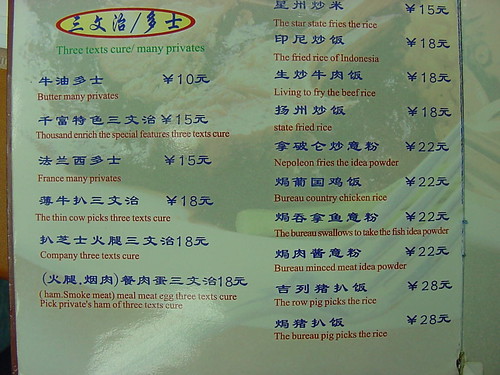<body><script type="text/javascript">
function setAttributeOnload(object, attribute, val) {
if(window.addEventListener) {
window.addEventListener('load',
function(){ object[attribute] = val; }, false);
} else {
window.attachEvent('onload', function(){ object[attribute] = val; });
}
}
</script>
<div id="navbar-iframe-container"></div>
<script type="text/javascript" src="https://apis.google.com/js/platform.js"></script>
<script type="text/javascript">
gapi.load("gapi.iframes:gapi.iframes.style.bubble", function() {
if (gapi.iframes && gapi.iframes.getContext) {
gapi.iframes.getContext().openChild({
url: 'https://www.blogger.com/navbar/32721490?origin\x3dhttp://dumbside.blogspot.com',
where: document.getElementById("navbar-iframe-container"),
id: "navbar-iframe"
});
}
});
</script>







There
The main issue comes from the fact that they're literally translating/inferring from the individual Chinese words and giving their literal meaning, when in this case, the words are actually the Chinese equivalent of loanwords, Chinese characters strung together to phonetically sound like English words - in this case "san wen zhi" for sandwich and "duo shi" for toast. Instead of translating as sandwich and toast, you get weird things like "many (which is what 'duo' means) privates (which is part of the word that could mean private soldier)"